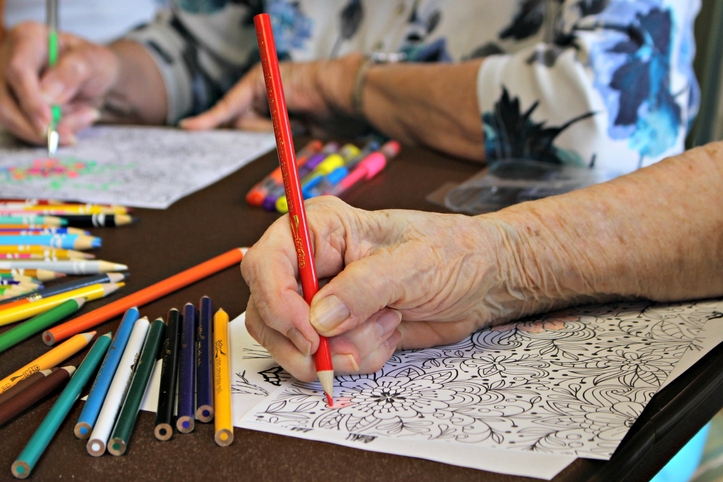Caring for someone with dementia is never an easy task. Furthermore, finding engaging activities they can successfully participate in can be a challenge. Of course, there are so many articles on caregiving for those with dementia. But knowing how to help them be engaged can be hard. However, art therapy for those with dementia has clear benefits. It is a growing modality in helping those with a variety of illnesses. And one of them is dementia.
Increased relaxation and lessened confusion are some benefits art therapy can have. In dementia patients, this is especially beneficial. The agitation and anxiety that many patients experience not only affect them. It affects their caregivers as well. The benefits of art therapy have long been recognized in the research community. Yet this form of therapy has only recently begun growing in popularity, according to this article.
Art can lead to heightened self-esteem and lowered stress. Dementia takes away abilities that once were taken for granted. Therefore, self-esteem can suffer. On a more scientific basis, there is proof that art activities lower the stress hormone cortisol. Regardless of the person’s abilities or skill level, the benefits can be clearly seen.
A symptom of dementia is a decline in sensory perception. However, art can help to stimulate senses through color, texture, and sound. If the dementia is more progressed, even looking at art has its benefits. Research has shown that looking at art causes a surge of dopamine in the brain. This improves mood, agitation, and aggression.
There are a variety of art activities that dementia patients can work on. Of course, individual abilities vary. But examples could include collages, paint by number, and handmade greeting cards. If these seem too difficult, try out some clay to make small sculptures with. Even the process of squeezing or pinching the clay can lead to reduced stress and anxiety. Additionally, turning on some calming music can aid in the creative process.
The end result of the art project doesn’t matter. What matters is the process. Giving dementia patients a sense of independence, purpose, and control is crucial to well-being. Dementia strips away many parts of ourselves. But it does not take away our desire to be engaged in our world.


